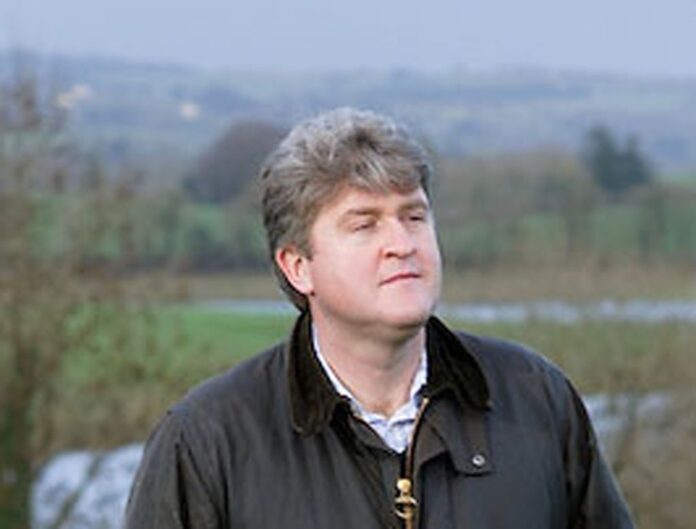MORE than one in four people in Clare’s workforce are currently on the live register or receiving the Pandemic Unemployment Payment.
There are more than three times as many people in Clare getting support due to lack of employment than was the case in February 2020, before Covid-19 had reached Ireland.
By any pre-Pandemic standards, the figures are incredible, reflecting a level of unemployment that would be unthinkable at any other time.
This week Clare TD Michael McNamara has warned that Ireland’s approach to the pandemic over the past year will lead to economic ruin, while he compared the lack of dissenting voices to the latter years of the Celtic Tiger, when there was little criticism of economic policies that brought disaster.
“The key is to work safely but we didn’t make an attempt to work safely, we just stopped working altogether. I’m not aware of any country in Europe that has dealt with it the way we have, which is to just do nothing, keep everyone at home and try to pay them as much money as possible, and think that’s sustainable,” he told the Clare Champion.
Ireland now has the highest debt per capita in Europe, he claimed, and in the long term he feels the country will suffer severe pain as a result of short termism since March 2020. “I’m not underestimating the challenges of dealing with Covid, that every country is dealing with. The way we’re dealing with it is going to bankrupt the country.”
According to statistics from the Central Statistics office there were 4,861 people on the live register in Clare last month. Meanwhile, 10,611 Clare people were on the Pandemic Unemployment Payment on Tuesday, meaning 15,472 were on one of the two benefits.
The most recent census showed Clare had a labour force of 56,529 people, and the figures indicate that just over 27% of this number are now on the dole or the PUP.
The situation is much worse than it was even at the start of the year, with more than 4,500 more people now getting one of the two payments each week.
While the creation of the Pandemic Unemployment Payment and certain other supports has saved the economy from complete implosion, there is undoubtedly much concern that recovery from one of the greatest economic shocks in history.
While there may be an argument that the poor state of Irish healthcare meant Ireland needed more extreme lockdown measures than other countries, Mr McNamara said that doesn’t hold water, as it ignores some of the advantages here. “There’s no doubt there would be a certain number of people unemployed as a result of the pandemic, that’s clear. But shutting down sectors of the economy and borrowing money to compensate them for being shut down to me makes no sense. Every country has had to deal with the pandemic, some were better placed having a better functioning healthcare system, but equally they had different population patterns, which made it more difficult for them, we have a younger population and Ireland is less densely populated.”
The Government has opted out of taking a considered approach to the challenges the country has been facing, he feels. “Since June of last year this Government have had a democratic mandate to deal with some of the problems and they haven’t done that in a sustainable way. And we’re going to have to deal with this in a sustainable way because it’s going to be with us for some time.
“We’re one of the few countries that has shut down most sectors of the economy, and for the longest period of time. There are countries that are gearing up to have a tourism season this summer, we’re not. Ireland is in the top half of countries in Europe that rely on tourism, but we seem to have no cognisance of that.”
If people feel that closing down the economy and increasing borrowing was in the interests of public health, Mr McNamara said the example of Greece should be heeded, where healthcare capacity was reduced after the State became insolvent.
He warned that policies that are not particularly controversial at the moment can be shown to be foolhardy in time, and gave the example of the consensus around economic policy in the latter years of the Celtic Tiger boom. “Nobody said stop, where were the voices in politics saying that the policies that were being pursued were going to lead to ruin. I think the policies that we are pursuing at the moment will have a ruinous effect on our economy.”
Also this week, new Ennis Chamber President Darragh McAllister said that he believes recovery will come, but it will not be a case of returning to something like the pre-pandemic economy. “The recovery is definitely going to come, a substantial recovery, but we will recover to a different place. I think every industry is facing serious change. I’ve made it clear to our members that recovery doesn’t mean going back to where we were, it means going back to a place where we are comfortable with ourselves, with our feet on the ground in terms of business. It will be different for the vast majority of businesses. Manufacturing has changed because of how things were done in the last 12 months, retail has changed massively, my own trade, hospitality, has changed massively because it ceased to exist! When it does come back that will change because people’s attitudes and habits will have changed. Every single industry that the county relies on will have a new way of doing things that will bring massive challenges. There will be people who are fearful of the challenge, but every challenge brings opportunity.
“All those small businesses in Clare that have had a tough time, they are now on a level playing field with the same kind of businesses all across Europe. The big shop in Italy that was doing a bit of online selling, he’s on a level playing field with the small shop in Ennistymon or Ennis or Clarecastle.”
Owen Ryan
Owen Ryan has been a journalist with the Clare Champion since 2007, having previously worked with a number of other publications in Limerick, Cork and Galway. His first book will be published in December 2024.



